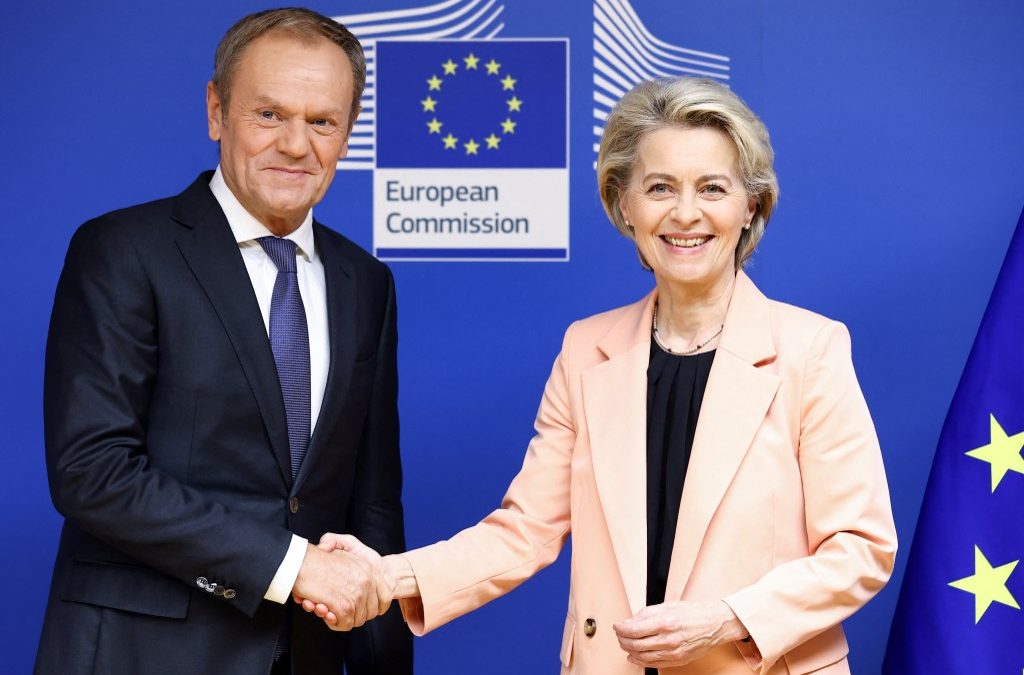The European Commission announced on Monday that it will conclude the Article 7 procedure against Poland. However, this will not happen before May 21. In the Commission’s assessment, there is no longer a serious threat to the rule of law in Poland. President of the Commission Ursula von der Leyen congratulated Prime Minister Donald Tusk.
Von der Leyen confirmed the information to PAP. She stated that, in the Commission’s assessment, the procedure against Poland could be closed.
“Today marks a new chapter for Poland. We believe that after more than six years, the Article 7(1) procedure (Treaty on the European Union) can be closed. I congratulate Prime Minister Donald Tusk and his government on this important breakthrough. It is the result of their hard work and decisive efforts towards reform,” she emphasized.
The EC announced on Monday its intention to end the procedure, initiated against Poland in 2017. The analysis conducted within its framework has been finalized, and its results are positive – it was added.
The Commission’s analysis will be passed on to the member states. The procedure will not end before May 21, when the Ministers for European Affairs within the EU Council will convene. This body was responsible for conducting the procedure, including organizing hearings for Poland. The transition to the next stage – voting, which in the case of unanimity could threaten the suspension of some rights of the member state, also depended on the EU Council. The EU Council acted on a request from the EC, which had asked the member states to initiate the procedure in 2017. In recent months, as the Polish government began to seek to close the procedure, it was not clear who would take care of this. EU lawyers ultimately determined that the Commission could do this, withdrawing its request from the EU Council.
Vice-President of the EC responsible for the rule of law Viera Jourova will inform the Ministers for European Affairs during the session on May 21 of the intention to withdraw the proposal and will explain the reasons for the EC’s decision. According to the EU source, this will then be followed by the official conclusion of the procedure by the Commission.
The EC recognized that there is no longer a “clear danger” to the rule of law in our country within the meaning of Article 7 of the Treaty on the European Union. It appreciated the fact that “Poland has undertaken a number of legislative and non-legislative actions” to respond to doubts related to the independence of the judiciary – it was conveyed.
Asked at a press conference what had changed in Poland because de facto no changes in the law have yet come into effect, EC spokesman Christian Wigand pointed out that the Polish government acknowledged that there is a threat to the rule of law, presented a plan to counter it, and began its implementation. “For the first time in years, we see a clear commitment from Poland to address the issues. We also see specific steps to lead to this, the first legislative proposals,” he explained.
The EC’s opinion on the state of the rule of law in Poland was also changed by the fact that the Polish authorities recognized the primacy of EU law and committed to implementing all the rulings of the Court of Justice of the EU and the European Court of Human Rights regarding the rule of law, including the independence of the courts. The EC also noted that Poland had joined the European Public Prosecutor’s Office – an entity responsible for prosecuting violations of funds from the EU budget.
(05.06.2024)
 go to the original language article
go to the original language article
